UFOLOGISTS: NEITHER PSYCHOLOGISTS, NOR RELIGIOUS PERSONS, NOR SOCIAL WORKERS, NOR JOURNALISTS
By CARLOS FERGUSON
“Let us be wary of those who celebrate post-truth, naively or cynically, in the name of public expression unrelated to any attempt at social agreement and obligations towards others.” (Silvio Waisbord, Director and Professor at the School of Media and Public Affairs at George Washington University / Doctor in sociology from the University of California and bachelor’s degree in sociology from the University of Buenos Aires)
“The drama of the Internet is that it has promoted the village idiot to the level of bearer of truth” (Umberto Eco)
As we have been pointing out in several articles, there is a fundamental problem in Ufology: the lack of general internal canons.
This situation is often taken advantage of by some current participants in Ufology (some disseminators and detractors).
With the new 3- or 4-way streaming mode, where they answer, re-answer and then dare to start chattering and judging, disseminators without case studies and without training, carry out a constant criticism of the “researcher” in general.
The curious thing in these cases is the profound or total lack of knowledge of historical data with which they operate, typical of improvised «drivers.»
They make their complaints and shouts as if they had already burned through years and years of stages in seconds, and without the slightest experience of the difficulties that many investigations have entailed.

AN UNRECOGNIZED SCIENCE IN THE FORMATION
“Certain men have the talent of seeing a lot in everything; but they have the misfortune of seeing everything that is not there, and nothing that is there. A piece of news, any occurrence, provides them with abundant material to discuss in profusion, forming, as they say, castles in the air. These tend to be great planners and charlatans.” (Jaime Balmes – The Criterion)
As it is not a science, Ufology runs the risks of any discipline in the making.
Born in an environment with great researchers and theorists, over the years its level has declined, due to various factors.
Mainly the priority of its participants in the dissemination of scoops and the primacy of the image over the testimony.
Ufological activity is not something homogeneous, but rather an endless number of variants, attitudes and positions.
But everything is limited to one thing: the techniques and ways of approaching the survey with witnesses, which is no less complex than the possible collection of waste.
Today, 95% of the total number of participants are not dedicated to research and are disseminators and repeaters of stories.
That is to say: they do not want to nor are they interested in applying any technique or filter to analyze a story, claiming that this is “being cold.”
I have already detailed this in an article called “The 17 misfortunes of Argentine ufology.” (QUOTE 1)
Accuracy is something that seems totally at odds with the current dissemination of Ufology by participants who do not intend anything other than to generate expectations of “sensationalist reports” and “scoops” in images.
Lic. Angel Díaz, already reflected this situation in 1998, speaking of responsibility:
“Every cultural activity is by definition oriented to the Community. Ufology is included in this category, more precisely as a Parascience that, without a doubt, will be classified as Science in the future.
From this perspective, it is unquestionable that the dissemination of the thematic content of Ufology is an obligatory circumstance, which must be assumed with responsibility by those who practice it.
There are many who carry out a pretended ufological dissemination, but who in reality do not know the subject in depth and, frequently, they do so with spurious purposes.
The result of this is poor information in the general public, with a distorted vision of Ufology and of those who practice it.
This situation is frequently taken advantage of by detractors and cover-ups of the subject, to expose it as an example of the iniquity of the activity and the poor training of its practitioners.
As public opinion is generally nourished by disseminators, opinion formers or social communicators, the quality of the opinion formed will depend largely on them.” (Lic. Angel Díaz – Ufology Bulletin No. 22 – September 1998)

UFO CRISIS BEGAN IN THE LATE 80’S
“The ignorant, when they argue, do not bother at all to teach the truth, nor to learn, because their only objective is to win the opinion of all those who listen to them. I do not know that there is a greater evil for man than to have false ideas about the matter we are dealing with…” (Plato)
That this crisis began years ago is not news to those of us who have lived through it and have examined the data in its entirety.
Already in the 90’s we were talking about a «crisis» in the then RAO (Argentine Network of Ufology).
This situation was clearly reflected in a survey we conducted back in 1999, at the last congress of the century (Mar del Plata).
The total number of respondents was 18 members and the results can be read by the reader below in the quotes, at the end of this note. (QUOTE 2)
This reveals a clear dissociation between the personal objectives and those of the organization we had at that time, of a large majority of those who were part of it (some of whom today boast of «unity, and investigative and human capacity», when at that time they only generated internal disputes and apathy).
We already saw the gloomy panorama that was coming.
The reader should not believe that such a situation had anything to do with the RAO, since the network was undoubtedly the entity with the most achievements in Argentine history: Biennial Congresses (1991, 1993, 1995, 1997, 1999, 2001, 2003 and 2007), in addition to a scientific conference (2000) and another one for dissemination in Buenos Aires (2004), creation of a basic manual, elaboration of 50 quarterly bulletins with annual cases, voting system, etc.
This situation of failure, as we have seen in the survey, had already occurred before.
Making history (real and not invented), in mid-88 the RIFO (Reunion of UFO Phenomenon Researchers) was created in Buenos Aires.
They met at the legendary Café Tortoni, and a few great researchers participated (and others not so great, who have continued to stir spoons ever since).
Among its objectives, RIFO had some basic ones:
1 – Re-investigation of famous cases
2 – Conducting psychosocial studies
3 – Creating a Research Manual
Among others.
As far as we know, they were never able to achieve even one of them.
The story is the same as always: 10% who put in all the effort, while 90% rested on the couch of laziness or looked for something to take individually.
That same percentage remains today, with new participants.
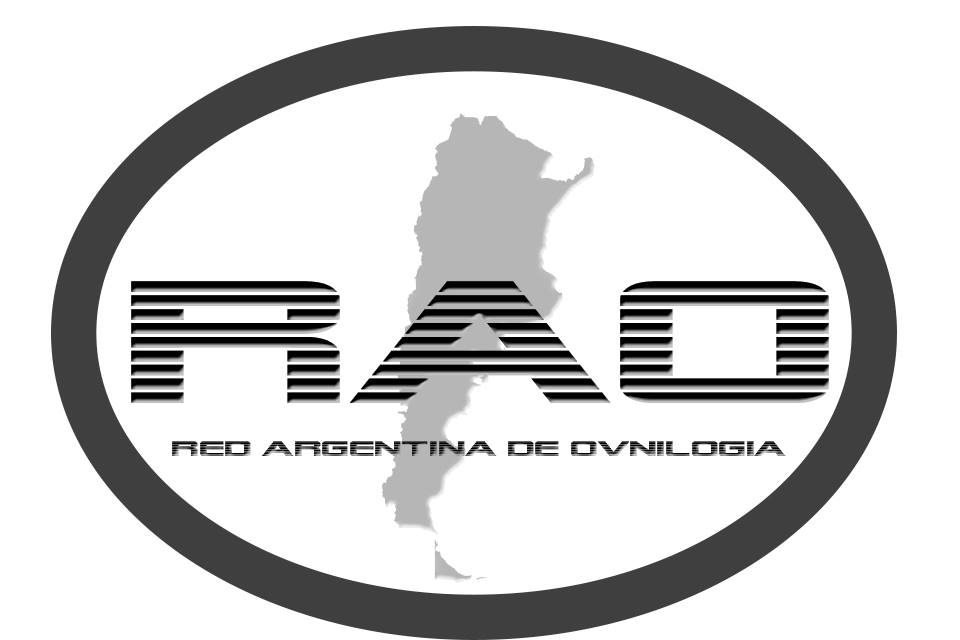
STATISTICAL EVIDENCE CONFIRMS LESS AND LESS INVESTIGATIONS
All this harsh reality can be demonstrated with data, so that it does not remain mere opinions. Since I have been able to classify all the cases of landings in Argentina (the most extensive and complete work that demanded years of preparation), I have concrete elements to statistically demonstrate many things.
The classification is not a simple chronological montage. It allows the information to be evaluated with parameters and techniques that are not hunches or opportunistic speeches.
For the illiterate who suggest that this methodology is not used, we recommend that they educate themselves to see what many people have done on this subject, before they start chattering into microphones.
If they did, they would notice some basic issues.
What we can confirm is that the best-rated cases were those from other decades.
This is what we see in the following graph:
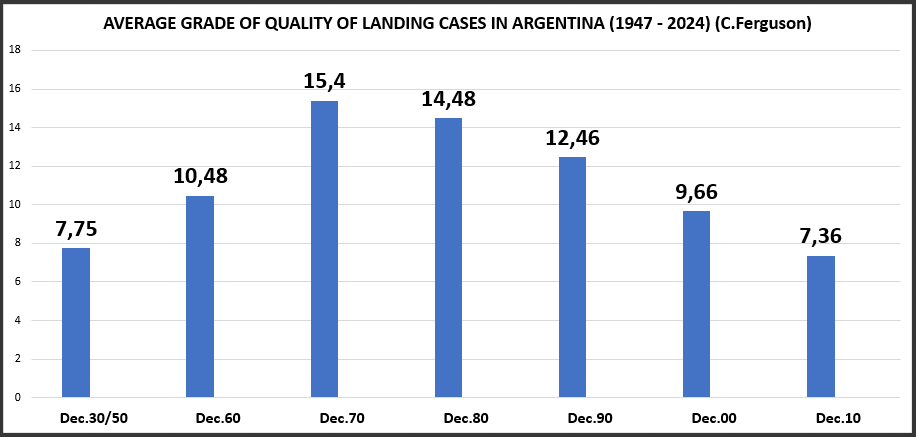
As can be clearly seen, this higher level of evaluation does not come from a question of the old events being “better” than the current ones.
What we see clearly reflects that in the 70s we had the highest point of evaluations in the cases, the result of more exhaustive investigations, and adjusted to a basic methodology.
Little by little, this level of cases was decreasing.
And today, we are as at the beginning, with a considerable decline, because the investigations have given way to simple journalistic or media-type surveys.
Another interesting graph shows us the Quality Degree of the cases in comparison with their historical evolution (by decade).
Here we clearly see that the quality does not come from a greater number of complaints, but from the degree to which the investigations are attended to.
These are incontrovertible data: the level of investigations (and the number of those in charge of them) has decreased in free fall since the 80s.
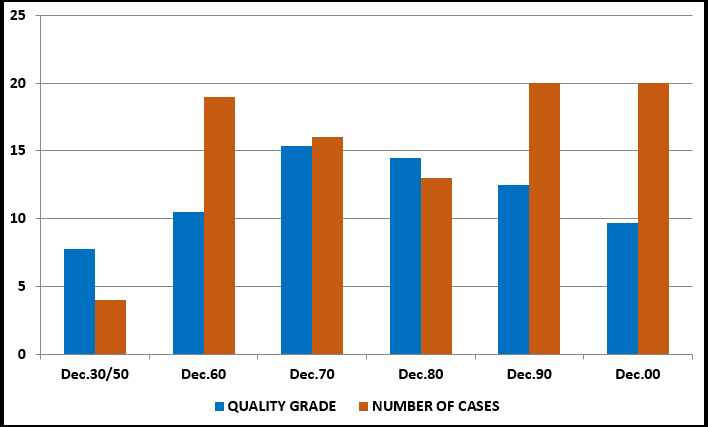
THE NEW UFOLOGY: TOO MANY SEATS AND ONE MICROPHONE
“The fidelity between a medium and its readers has been blurred, the quality of illustrations and photographs is no longer taken as much care, and instead sensationalism and the manipulation of information is promoted. People who are not trained to verify facts can give their opinions and present their biased views as if they were the absolute truth. Sometimes it depresses me to think that I am close to forty, but then I remember the good thing about having lived in a time when there was still a certain generosity and commitment to information…” (The journalist Hugo Filártiga points out well in his work “What has changed in journalism? The influence of social networks and sensationalism”
To all of the above we must add the appearance of a series of disseminators who saturate the network with tendentious, fallacious and ridiculous information.
Nowadays it is not difficult to create a hoax or “snowball”, where everyone starts to reproduce said information like an avalanche. Do we know where it originated? Do we know what purpose the person who spreads it has?
In these cases, we can only trust renowned analysts with a track record.
For this, records of people, their prestige and historical trajectory within an activity are useful.
Nowadays anyone can create a page or make a program on Youtube where they proclaim themselves “ufologist expert”, adding dozens of data to a false resume and exaggerating achievements that sometimes did not even exist. We also have those who position themselves from outside the investigation, as “opinion makers”, or even present themselves as “curious”.
Others, in streaming, get together with 2 or 3 more, where they embolden themselves and give feedback to try to convince those who hear fallacies.
From the above it follows that 95% are dedicated to a diverse group of activities: disseminators «for the love of art» and/or for money, pollsters who present themselves as occasional and scoop journalists, improvisers who make notes for some intermediate media and who have serious historical flaws or omissions, generators of stories appealing to the emotional, ufogastronomy, etc.

The comfort of the «new ufologist» is one of those characteristics and does not come close to the conditions that those of us who dedicated ourselves to the subject in the 70s, 80s and even 90s went through.
I will refer to that later.
Neither psychologists, nor religious workers, nor social workers, nor journalists
“The first responsibility of the investigator is to the witness and not to the UFO phenomenon. The average witness is in a state of shock because he has had a very traumatic experience, which will change his life… the witness needs more immediate help because he is a human being who is totally confused by a disturbing experience. Unfortunately, this element has been eliminated. Most UFO investigators try to appear “professional” so they ignore the human aspect and, consequently, their own ethical obligations. I want to convince my friends who are engaged in UFO research that we never have the option of obtaining interesting information about UFOs and giving a chance to the life of a human being; in that case, we must forget about UFO information.” (Jacques Vallée)
The words of the great Dr. Vallée are clear.
And we have emphasized it in countless notes.
Within UFO research, and in so many paths traveled, one of the things we notice at first glance is that to a large extent, ufologists (researchers, not those who spread opinions) are a kind of confidants of those who have had their experiences with the phenomenon.
This situation makes us have a great responsibility when it comes to reaching witnesses, by whatever means.
In the course of research, we have seen and accompanied the misfortunes of dozens of witnesses.
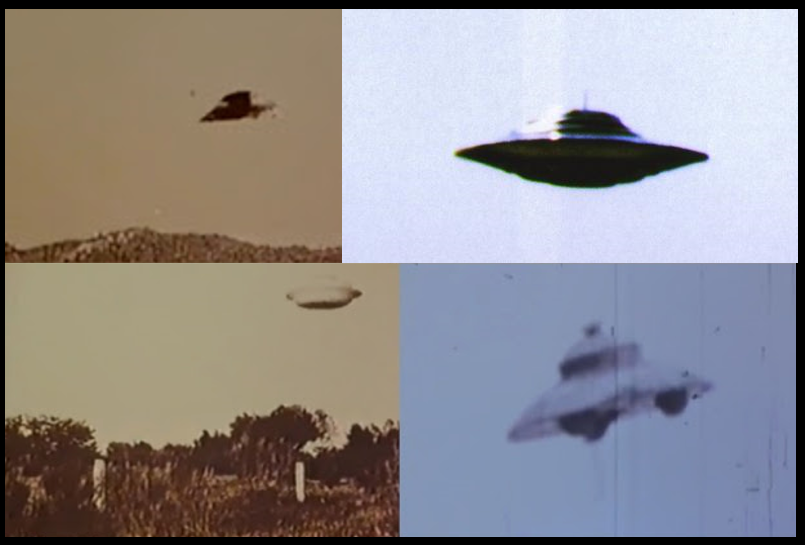
Personally, I care little about corporatism, and I am not going to defend those who do not, nor will I take charge of what is usually called researchers.
As I have been saying for some time, I am more active than ever in Ufology and its data and totally inactive in the internal world (I only contact some valuable colleagues), because after so many years one has already become convinced of the vulgar deceptions of some who patted themselves on the back and were responsible for the failure of the collective.
So, I am completely free and have the right to point out all this, after almost 50 years of being involved in this matter.
But a handful of valuable contacts that one has (and some who are no longer with us and we know how they worked), do not deserve, not even remotely, that some scoundrels try to tarnish their activity in this matter.
There are countless names (and I do not want to forget any), but there are about 20, that these misinformed people did not know and did not take the trouble to find out, with excellent careers and who have always taken care of the human part with witnesses and colleagues.
In addition to the official puppet of Argentina who tries to defenestrate the ufologist, there are also occasional commentators who have never been trained or have been in charge of investigating a case, to imitate him.
More than 30 years ago we talked about the human quality of investigators and prioritizing the witness. Not in vain, in the congresses of the Argentine Ufology Network it was the most valued mention.
Without knowing the data of those who have experienced realities (or even the complete documentation), the disseminators of mysteries or tellers of gossip usually make quick speculative analyzes of what «was not done or was done wrong.»
Generally, without documentary basis, they commit fallacies not only in the cases and historical data, but also now wanting to give us moral lessons. But ufologists are not psychologists, religious people, social workers or journalists.
Although we must have knowledge in these activities, we can never fully assume them.
We are interested in the human aspect of the witnesses, their need to tell us their experience – often traumatic. For this, there must be empathy or a degree of trust.
Once this occurs, we can have a more or less subsequent contact with the person who suffered an experience.
Sometimes contact continues and we follow many cases that require continuity.
In other cases, this contact is more sporadic or sometimes ends definitively (as it usually happens in all areas of life).

It is pathetic to hear some people at the microphone in comments where they believe that the ufologist must be some kind of therapeutic companion, spiritual counselor, social worker or eternal journalist with a witness.
A ufologist collects the accounts of witnesses who claim to have had a UFO experience. To do this, there are basic techniques and rules to obtain the most original information possible.
By original, we mean original, primary and not contaminated by third parties (not like a simple journalistic talk looking for scoops).
Therefore, it is not just a matter of “listening” to a witness, but there must subsequently be an analysis or filter, to find the possible differences and tendencies between a convincing account and one that makes us seem delusional or confused.
In other words: the ufologist must also discriminate the information he obtains.
Therefore, Dr. Vallée rightly points out:
“In ufology, it is healthy to assume that some of the available data may be misleading” (end of quote)
To do this, every researcher must have a minimum knowledge of different subjects, sciences or studies or -when the situation requires it- resort to various professionals.
There is a lot of knowledge to explore, but there are lines that can never and should never be crossed. That is why we rely on other specialists when we investigate. Otherwise, why would we need botanists, psychologists or other professionals in this field?
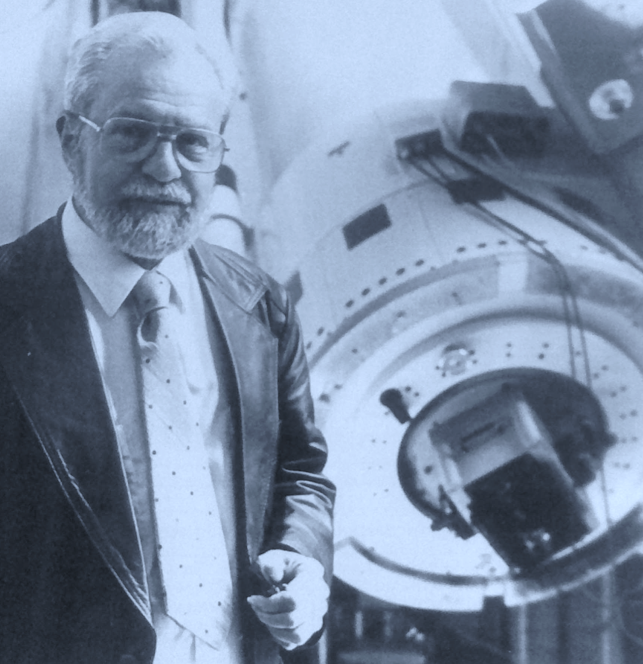
As many of you know from my writings, when they looked for a way to remove us as ufologist advisors to the Argentine Air Force (the person writing this and two others) it was precisely because their director required us to be specialists in image analysis, since his focus in this matter is only to analyze some photos and dismiss all cases.
It is not surprising, since this person believes that ufologists are seekers of “green dwarfs or believers.” Our extensive documentary archive was left aside because we were dealing with a dogmatic person without bibliographical review. (QUOTE 3)
Returning to the subject, the training of a ufologist -even without having a canon like other disciplines- always has a funnel that differentiates him from a simple interviewer: the methodology he applies.
That should differentiate him from the improvisation of a basic survey. There are several of us researchers who maintain contact with dozens of witnesses, with whom we continue to exchange opinions or thoughts from time to time.
But when for various reasons that connecting thread does not continue, nobody abandons anyone, it is simply a back and forth like relating to countless people in life, and for different reasons.
The same occurs with press men, once they gather information about a case, sooner or later they move away from the place, and that does not mean that they do not maintain contact or lose interest in the fate of the people.
A psychologist can also end his meeting with patients for various reasons, and that does not mean that he does not consider them humanely.
And so we could continue with many other examples. Ufology is no different from these or other activities: we gather information and accompany the witness, supporting him, but this does not mean that we must cross some limits, as the «experts in charlatanry» pretend. Only someone without basic training in data can imagine that a ufologist is a kind of «serial deserter» for not following up on any contact with a witness.
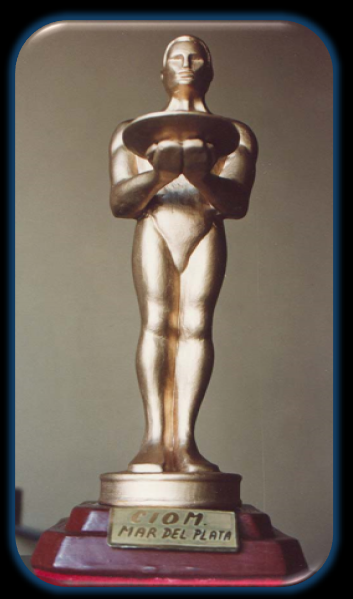
BLACKMAIL BY EMOTION
“Imagine accumulating followers not because of the quality or positive impact of your content, but because of the morbidity aroused by your lack of academic preparation or the negative controversy generated by your uninformed opinions. They stand out for sharing low-quality content, false information or expressing polarizing opinions that generate rejection. “This dynamic reveals a dark side of social media, where negative or sensational content sometimes gains more visibility than constructive or educational messages.” (“Sensationalism and morbidity in social networks. The importance of studies” – Universidad Modelo de Valladolid, 2023)
These disseminators of scoops and narrators of mysteries seem to know and have a clear idea of what should or should not be done in an investigation or in “human” affairs.
They have no idea of the activity of many investigators with witnesses, but they attack without shame like cows against fences.
We are faced with the executors of “blackmail by emotion.”
They are those who do not know, cannot and do not want to separate the emotional aspects of the information, simply because they are not interested in the investigation. They could never be judges, lawyers, psychologists, etc. But they could not be ufologists in basic research either. And they want infallibility in ufology, pretending to distract themselves with other specialists, whom they do not even mention.
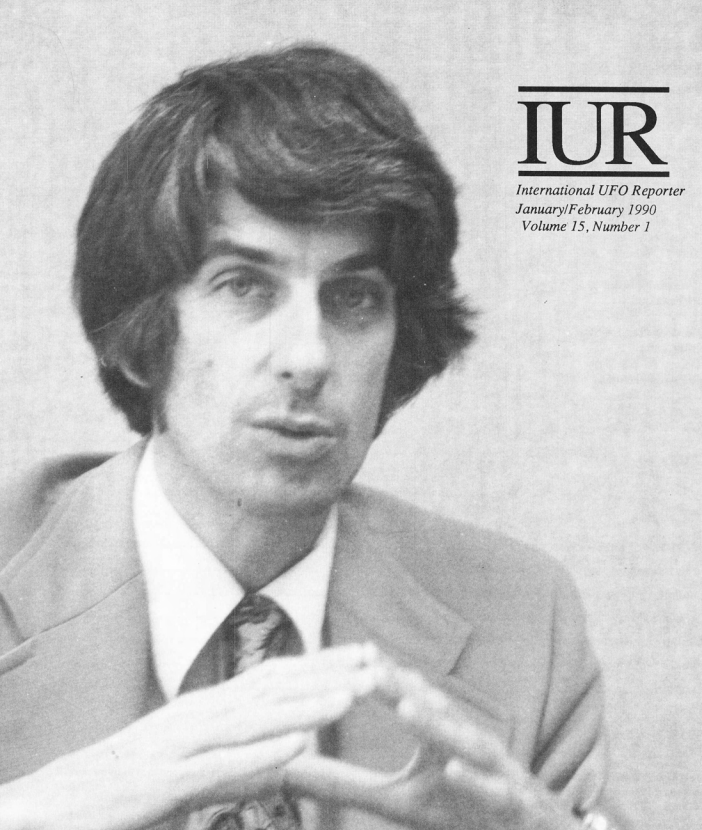
By listening to the witness (even in first-hand analysis), we researchers fulfill a social role, making him unload his experience on us.
Many of these disseminators of opportunism forget that some researchers also had to travel to places paid for by ourselves, fulfilling the role that the official does not fulfill.
In other times, we went to see witnesses (sometimes hundreds or even thousands of kilometers away), when there were no cell phones or any other means of communication other than landlines or postal mail.
And even more: many of the rural witnesses in isolated areas did not even have a telephone.
And even with that, we have many witnesses with whom we can keep in touch with their story.
But for the blackmailer it is easier to generalize and not waste time chattering without any foundation in front of a microphone.
These and other falsehoods can be said in front of microphones, ignoring that every researcher with years of experience has dozens of witnesses (even in complex cases), and that – knowing where to locate them – he does not do it, because he has no desire or need to create a scandal about it. And even more: on occasions more than one witness has been protected from falling into the clutches of cheap sensationalism of opportunistic disseminators.
Today, every researcher must take care of the witness so as not to fall into the hands of disseminators who only seek emotional blackmail.
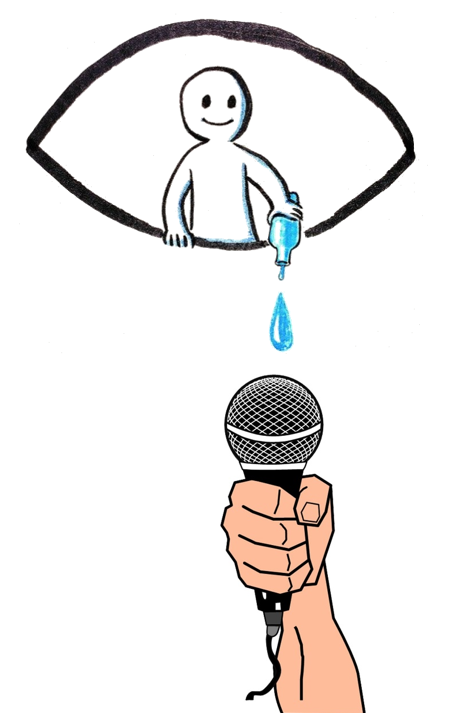
TALK AND TALK….
“A sentry stood guard to warn the population in case the enemy appeared. The man was fond of pranks, so, to have fun, he raised a false alarm. However, he then ran to the walls to defend the city from the enemies he himself had invented. It follows that the more successful a liar is and the greater the number of those convinced, the more likely it is that he will end up believing his own lies.” (Hannah Arendt)
“All systematic work of scientific intelligence begins with the observation of empirical data” (Dr. Jacques Vallée)
Although Ufology is not a Science, Hynek already spoke to us of the imperative need for its professionalization.
We will not go into what should be a minimum acceptable survey. There are several writings on this subject (which many disseminators neither read nor are interested in). The work of the late Captain Daniel Perissé (“Methodology of UFO research”) contains important details on how to approach the survey. And there are others at an international level.
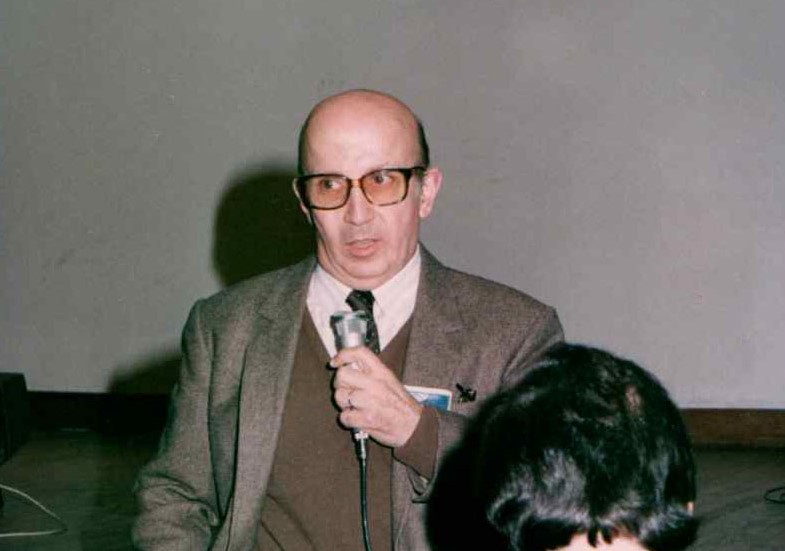
All the ramblings of popularizers or theorists without data (not only statistical but historical), make them ramble on with endless speculations or imaginary narratives.
After all, by assuming themselves as “non-researchers”, they free themselves from the burden of effort. In short, “let someone else investigate, and we will talk about it later”.
We would have to see them themselves developing an investigation “first hand”, to see what they do, but one thing is certain: if their weapons are the blackmail of emotion, they will not reach any valid information.
A few years ago, a “former ufologist” constantly launched similar speeches about the supposed uselessness of surveying witnesses with some ufological methodology. Luck and irony made it possible for us to see him in person and in “action” (if we can call it that), acting as a “potential former ufologist”. There we understood that his entire speech collapsed in the facts.
Armed with a notebook, a pen and a frown, he arrived at the place without even greeting the owner of the place where some footprints had been found. He immediately went to talk to neighbors on another sidewalk, quickly returned and said: “There were no witnesses of any UFO, the case is closed.”
In the imagination of such a character, he had achieved a “victory” and had “demolished” another case, to tell his friends in Spain. It took him 8 minutes.
There we saw the “rational and critical investigation” from head to toe, which was infinitely worse than that of any improvised ufologist.
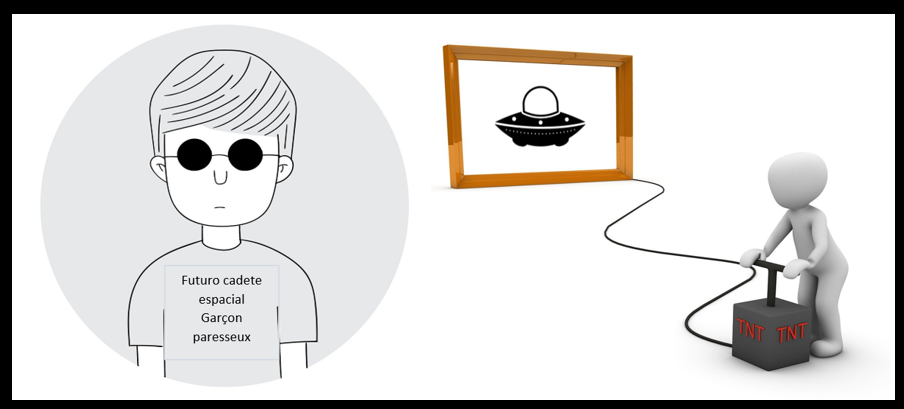
OSTRICHES WITH THE OFFICIAL
“It is not the budget that counts, what really counts is whether there is the will to investigate on the ground with an imagination and diligence commensurate with the complexity of the phenomenon itself” (Dr. Jacques Vallée)
“Demanding” that ufologists be irreproachable is common among popularizers and adventure storytellers, but they do not do the same with those who, on the official side, have a space with greater logistics and budget.
It is striking to see how they “tear their clothes” against the investigators, and act like ostriches when they do not demand in the same way, from the offices that would be in charge of giving support to the witnesses.
When we talk about a percentage of witnesses affected psychologically, but also physically, the best environment and with more resources to give them help is the official one (much more than what an individual investigator can do).
And it is official because as we know, the perception of the UFO phenomenon (from its appearance and/or disappearance) is essentially aerospace.
In different notes that I have recently published (and the result of the largest archive of landing cases), we find dozens of cases with witnesses affected by burns, vision problems, paralysis, or psychological impact.
All of them never received professional support or support from the responsible entities.
This continues to happen, and it is not a history lesson from yesterday.
We do not see the “whistleblowers against ufological research” putting the same effort and determination to criticize and duly demand from the official authorities.
For a complaint of this type it is not necessary to be a “researcher”, but a simple citizen who fraternizes with dozens of affected witnesses.
Have they done it?… Have they sent their complaint to the authorities? It goes without saying that this has never happened, except for the undersigned and a couple of colleagues.
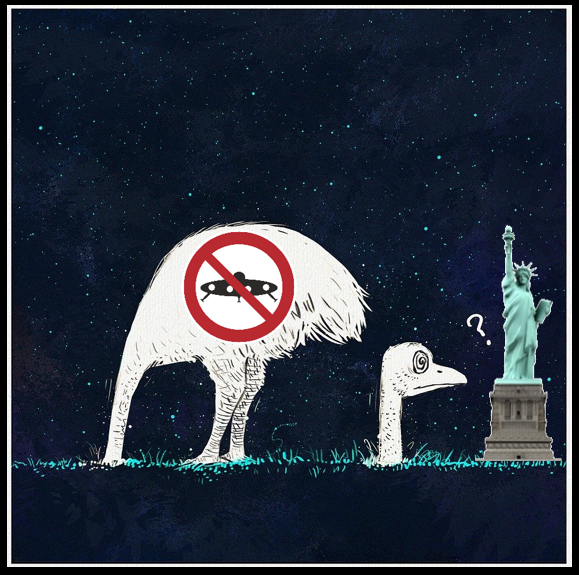
DIFFERENCES BETWEEN DISSEMINATORS AND RESEARCHERS
“Social networks are made above all for action; They push you to repeat, to spread, to share the message. They are not very rational and seek convictions that are made by impact, not by slow or progressive reasoning. What dominates networks is magical thinking. The truth is increasingly emotional and not real” (Dr. Ignacio Ramonet)
Simply as an example of what happens with Journalism and Investigative Journalism, we have many differences there that could well be adapted to Ufology. In ordinary journalism:
A – Scoops are of interest
B – The story is sought without going into depth
C – Generally describes what happens, without exhaustive analysis
D – Reveals the most revealing, but does not go after hidden data
E – Generally communicates news and third-party material
In investigative journalism:
A – Scoops are not of interest
B – Priority is given to documentation and archiving
C – Tries to go beyond what happens…
D – There is information behind the common channels
E – Applies certain general techniques in their work
In addition to the latter, we can extend the concepts to what the Spanish journalist Pepe Rodríguez has already pointed out about other conditions that the investigative journalist must possess:
Have the ability to observe
Have the ability to retain
Have a visual memory
Have the ability to plan and foresee
Have discretion
Have an interest in the fundamental facts
Have a structured approach to analysis
Have the ability to improvise and decide
These are just a few. We can say that ufological researchers must have many of these characteristics, and even surpass them.
And we would add another fundamental condition: ethics, which makes one intellectually and humanly honest.
In the eagerness for the scoop, we are even seeing that historical facts have begun to be distorted, and even – in some cases – the anonymity requested by witnesses is violated, which demonstrates the baseness of those who operate without minimum values of conduct (we will not let another case pass, where a supposed «researcher» violates the secret of anonymity or identity, and we will publicly denounce it.

CONCLUSION
“I am serious when I say that to be successful in the next decade, ufology must become a profession with accepted standards of action. And doing so involves a lot of house cleaning.” (Dr. Joseph Allen Hynek)
Ufology already has some canons (technical procedures and ways of carrying out its activity), and there are unavoidable ethical issues in it. It lacks total professionalization, which will surely come with time.
Many of its participants still resist basic molds to study the phenomenon.
This continues to generate a great deal of disorder, which is a breeding ground for any type of cover-up or spurious purposes.
This is how narrators appear, who look at the straw in another’s eye, and do not see the beam in their own.
Those who did not climb to the second step, can never position themselves to speak as if they were on the tenth.
They need to make their debut to understand some things. Their dialectical theory is never tested in practice, and they are pointed at as “masters.”
The excuse or justification “I am not a researcher” is another typical attitude of those who, in comfort and laziness, do not dare to take a key step.
It is very clear why this happens: perhaps they would not have time to give a speech, and they should get down to work.
To imply that a ufologist researcher must contain the witness beyond the basic limits is manifestly irresponsible.
There is no school of ufological training, but whoever decides to venture into it cannot do without using minimal techniques and forms of ethics.
Professional practice can never be surpassed by people who do not possess the elements and knowledge to do so.
To affirm the contrary is of a notorious discursive gravity.
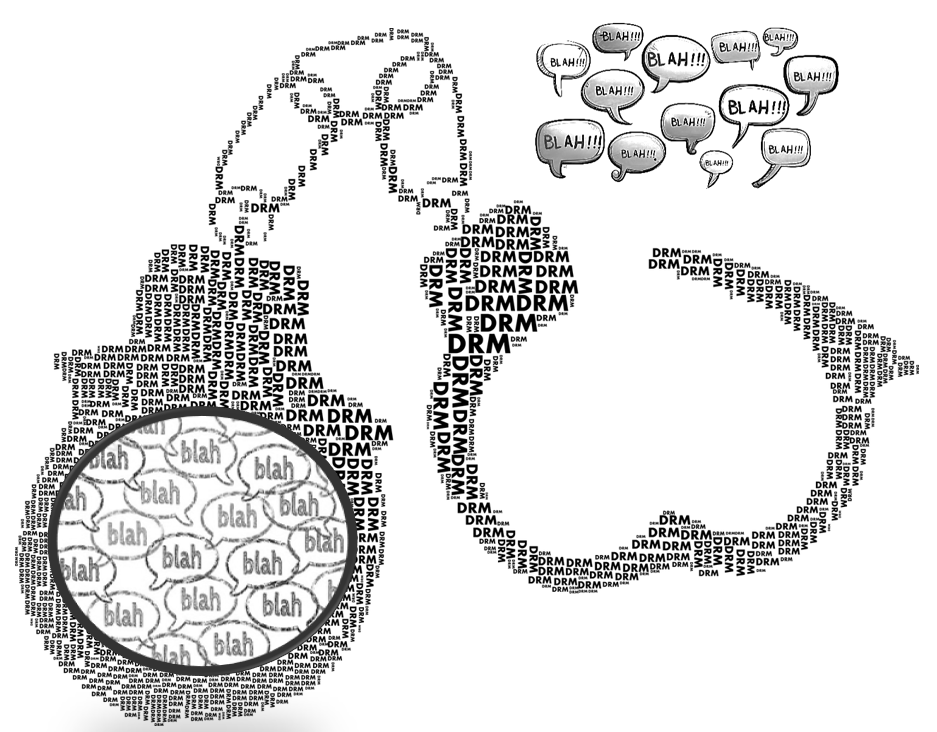
EPILOGUE
“There is no other alternative than to act with moderation and responsibility. There are several fronts or situations in which we must act: facing the Phenomenon, investigating and studying. Facing the People, trying to make up for the lack of response from the institution of Science.
Facing the latter, trying to provide research and studies that can be accepted. Facing the opportunists: unmasking them.
Facing the media: clarifying them, nothing less.
The responsibility of ufologists begins with a broad scientific-technical training in various fields” (Lic. Angel Díaz – Ufology Bulletin No. 25 – June 1999)
The emitters of imaginary narratives today have become, in their investigative uselessness, accomplices of discredit.
In their discursive eagerness they ignore countless factors and historical facts and speak from outside. They are those who do not dare, who are cowards in the face of research, and who only know how to criticize those who have done something, generalizing everything.
Whether they know it or not, they are part of the “whitewashed” censorship.
They believe and claim to be outside the UFO conspiracy system, and end up being its armed wing, with their microphone and language at the service of disinformation.
We are facing the dictatorship of the «like» (as Argentine journalist Carlos Álvarez Teijeiro points out):
“The dictatorship of like configures its own accelerated temporality: it is a frenetic, tumultuous time, in which the infinity of posts and images pass before our eyes at a dizzying speed, seen and unseen, fleeting, ephemeral presences, which in In a matter of a very brief moment they become painful absences. It is the blurriness of the self and its ghosts, its spectral visions.
In effect, through this process of collective hypnosis, the behavior of the ego becomes automatic and compulsive.
It is an exhibition that cannot stop being exhibited, incessant, without a possible end and for which the following prohibition governs: you will not stop showing yourself, it does not matter at all what price you must pay”
Emotion is not bad in itself.
It helps us connect with other people, helps us feel and express empathy, strengthening our emotional ties and therefore, it can make us better communicators.
But this can surely occur on a personal level in the intimacy of each investigation, without the need for spectators exposing the witness, nor for feeling like actors in a soap opera with tears.
We hope that – at least – from a small part of the new groups of interested parties, true enthusiasts for self-sacrificing and more silent, but authentic research emerge.
Ufology does not need more influencers of fantasies and likes, but researchers of realities.
Carlos Ferguson
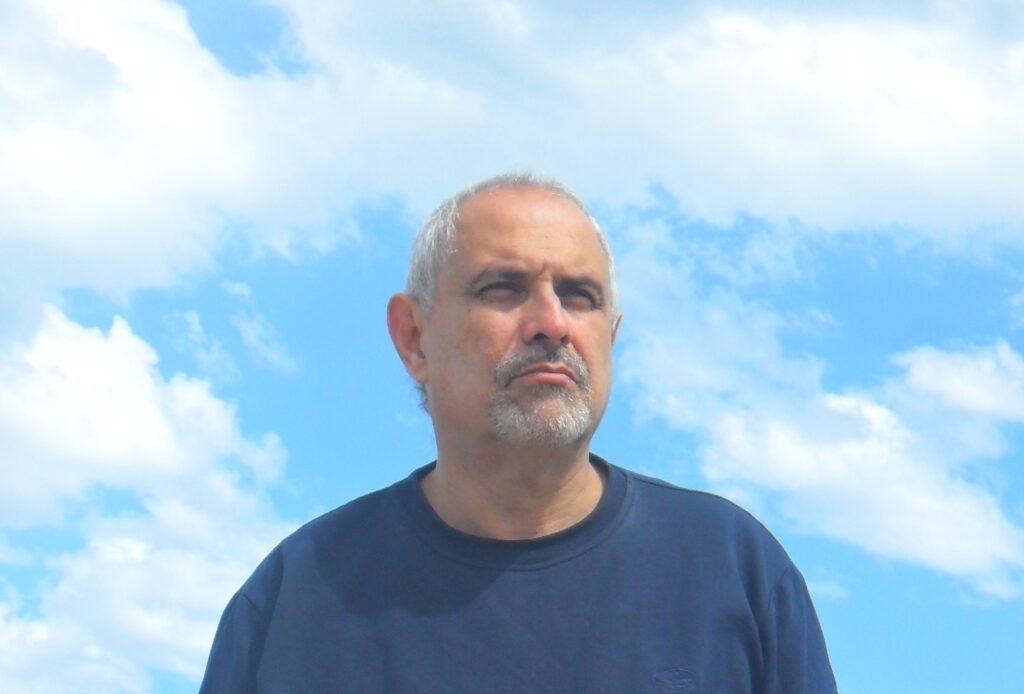
The author Carlos Ferguson works in the Educational area in the Province of Buenos Aires, Argentina. He is also a professor of artistic drawing and has been researching the UFO issue for 48 years, when, being a non-believer, he had a close encounter no more than 35 meters away with a disc-shaped UFO. He was the first civilian advisor in Ufology of the Argentine Air Force (2011 to 2017). He has courses in Satellite Technology, Remote Sensing and Geographic Information Systems. Author of 7 books and the largest compilation of disembarkation cases in Argentina, with classified facts. He has also carried out studies on cases of pilots and UFOs in Argentina, as well as on underwater objects and the most recent, on the physiological and electromagnetic effects on witnesses. Hundreds of talks and notes over almost 5 decades show him with a line of work adjusted to the parameters of statistics. He is dedicated to daily statistical work, but completely outside the environment of the ufological participants, maintaining some selective contacts.
Its partial or total reproduction is prohibited without the express authorization of the author.
QUOTES
QUOTE 1: “The 17 misfortunes of Argentine ufology” – Carlos Ferguson
QUOTE 2: RAO SURVEY YEAR 1999
QUESTION 1 = Why is the Strangeness and Credibility Test not applied in the cases? (It had been voted by majority to apply a minimum Test in the investigation of the cases)
ANSWERS
Member 1 = Ignorance / Member 2 = Ignorance / Member 3 = Ignorance / Member 4 = Ignorance / Member 5 = Convenience / Member 6 = They don’t want formulas / Member 7 = They don’t remember / Member 8 = Because it is incomplete / Member 9 = Because I don’t have it / Member 10 = Credibility is subjective / Member 11 = Lack of knowledge / Member 12 = They adapt it to personal taste / Member 13 = Own methodology / Member 14 = Own methodology / Member 15 = Each one applies it as it suits them / Member 16 = (There was no response) / Member 17 = (There was no response) / Member 18 = (There was no response) (answer)
Comment:
“Ignorance” is only acceptable in neophytes.
“Incompleteness” indicates not wanting to adhere to the slightest methodological approach.
“Because I don’t have it” is childish.
The rest of the answers speak of the researcher as an unrelated third party.
“No answers” indicate an already negative attitude.
QUESTION 2 = Why are negative cases not sent? (It is assumed that every researcher in his work, detects many negative cases, but these never arrive)
ANSWERS
Member 1 = Ignorance / Member 2 = They do not want to be left without a hobby / Member 3 = They do not contribute anything to the research / Member 4 = They overlook it / Member 5 = They ignore it / Member 6 = They ignore it / Member 7 = They do not give it importance / Member 8 = They do not give it importance / Member 9 = It is not the objective / Member 10 = Lack of time / Member 11 = They are not relevant / Member 12 = They do not take them into account / Member 13 = More believers than researchers / Member 14 = (There was no response) / Member 15 = (There was no response) / Member 16 = (There was no response) / Member 17 = (There was no response) / Member 18 = (There was no response) (answer)
Comment:
A large majority of answers DO NOT ANSWER the question, but only state the diagnosis, and speak of the researchers in the third person.
Other answers (“they do not contribute anything to the investigation”, “it is not the objective”, “they are not relevant”); show a very poor level of analysis, since the negative cases are as important or more than the positive ones.
There can be no diagnosis and a complete overview of the UFO research and study if the negative cases are missing.
The answer “lack of time” is unacceptable, since the same time required to investigate a case can lead to 2 possible paths = 1) positive case / 2) negative case.
QUESTION 3 = Why is the entry of collaborating members into the network not encouraged?
ANSWERS
Member 1 = Different objectives / Member 2 = Economic reasons / Member 3 = Because they don’t understand the spirit / Member 4 = To keep their own information / Member 5 = They don’t want to enter / Member 6 = They don’t realize / Member 7 = Selfishness / Member 8 = Selfishness / Member 9 = Selfishness / Member 10 = Selfishness / Member 11 = Selfishness / Member 12 = Selfishness / Member 13 = Selfishness / Member 14 = Self-interest / Member 15 = For economic reasons / Member 16 = Very little value for the researcher’s work / Member 17 = Lack of interest / Member 18 = (No answer)
Comment:
The predominant word that stands out is “selfishness”, one of the greatest characteristics of the Argentine UFO research environment. They keep talking as if they were “third parties.”
The answers “for economic reasons” and “economic reasons” are inexplicable (all joint work helps save time and money).
The answer “little value to the researcher’s work” shows the stupid zeal of someone who believes himself to be a researcher and who is bothered or afraid of public participation (that zeal that bothered when collaborators joined).
The answers “different objectives” and “to maintain their own information” clearly reveal that when the objective of the Rao organization does not satisfy him individually, that member will not participate in them (he wanted the organization to adapt to his interests and not the other way around)
QUESTION 4 = Why are joint tasks not carried out between members of the network? (when we hear about “joint effort”, “joint work”, etc. today, many of them are the same ones who only sought their personal interests on the network)
ANSWERS
Member 1 = Lack of awareness and unity / Member 2 = Individualism / Member 3 = Individualism / Member 4 = Individualism / Member 5 = Individualism / Member 6 = Egoism / Member 7 = Egoism / Member 8 = Egoism / Member 9 = Egoism / Member 10 = Egoism / Member 11 = Different approaches / Member 12 = Methodological differences / Member 13 = Tough economic times / Member 14 = Lack of trust / Member 15 = Because of the distances / Member 16 = Different approaches / Member 17 = (No answer) / Member 18 = (No answer) (There was one response)
Comment:
The terms “egoism” and “individualism” appear again. This clearly indicates that the differences and lack of achievements were not due to issues of knowledge possessed by the researchers. The main obstacle was the “colleague” in many cases.
We cannot forget the anecdote from 1997 of a speaker complaining to the author of this note (Congress Organizer), because another group had spoken more minutes than her at the congress. There she used terms of “betrayal” and other weeds, wanting to create a scandal worthy of someone childish.
QUESTION 5 = What is your true interest in participating in the network?
ANSWERS
Member 1 = Communicate and exchange / Member 2 = Collaborate and receive information / Member 3 = Demonstrate that the phenomenon is real / Member 4 = Form a serious organization / Member 5 = Communicate / Member 6 = Exchange information / Member 7 = Learn and perhaps teach / Member 8 = Communicate and inform / Member 9 = Communicate and inform / Member 10 = Join forces / Member 11 = I’m not sure anymore / Member 12 = Stay in touch / Member 13 = Give and receive information / Member 14 = Give and receive information / Member 15 = (No answer) / Member 16 = (No answer) / Member 17 = (No answer) / Member 18 = (No answer)
Comment:
We clearly see that the The thing that was sought within the RAO was the same thing that could have been obtained from outside. In other words, they never saw the network as something that would make it possible to overcome it.
That is why, when the Internet appeared on a massive scale, they decided to go their own way. There was never a strong interest in the block.
Only a couple of answers show a corresponding meaning (“join forces”, “form a serious organization”).
The answer “I am no longer sure” shows a clear dissociation with the objectives of the organization, which would lead us to wonder what the person who answered that was doing there.
The ones who “did not get an answer” are those who were there just to be there (theorists without casuistry).
QUESTION 6 = What expectations do you have for the network of researchers?
ANSWERS
Member 1 = That it evolves and achieves technology / Member 2 = Greater breadth of groups / Member 3 = Overcome isolation syndrome / Member 4 = That it can fulfill purposes / Member 5 = That it is the face of serious research / Member 6 = That it continues to function / Member 7 = Of consolidation and expansion / Member 8 = That it is a serious entity as until now / Member 9 = Communications network / Member 10 = Greater growth / Member 11 = Very few / Member 12 = Unite Ufology / Member 13 = (There was no answer) / Member 14 = (There was no answer) / Member 15 = (There was no answer) / Member 16 = (There was no answer) / Member 17 = (There was no answer) / Member 18 = (There was no answer) Answer)
Comment:
There are very few answers that are in line with the original objectives of the Network. The 6 “non-answers” are also an answer.
QUESTION 7 = What do you think you can contribute to the network of researchers?
ANSWERS
Member 1 = Good will / Member 2 = Research / Member 3 = Whatever is within my reach / Member 4 = Everything I can / Member 5 = The diffusion / Member 6 = Everything necessary / Member 7 = Research / Member 8 = My love and everything I can / Member 9 = The experience / Member 10 = The experience / Member 11 = The experience / Member 12 = My life / Member 13 = A lot… but it doesn’t help / Member 14 = (There was no response) / Member 15 = (There was no response) / Member 16 = (There was no response) / Member 17 = (There was no response) / Member 18 = (There was no response)
Comment:
This is the question that had the fewest responses, which reflects –at least– a sincere position and in accordance with what happened later: the majority I didn’t think I could contribute anything. The answer «a lot, but it’s useless» again shows jealousy and what is considered «betrayal» in the other.
Non-answers are answers.
CONCLUSIONS OF THE SURVEY
Most of the time we found negative, individualistic answers, or no answer at all. There is a clear dissociation between personal objectives and those of the organization, in a large majority of cases.
Excuses are outlined for various joint work objectives.
The survey was carried out after 8 years of operation, but it is evident that the various alternatives for change (strangeness test, entry of collaborators, etc.), did not have the necessary group awareness.
Even then we saw the bleak panorama that was coming.
QUOTE 3: From the official office and its director Rubén Lianza, (2017 onwards), they never valued the immense documentary material that we could contribute. That is why today we work with foreign organizations and researchers who value it.
QUOTE 4: “The dictatorship of like and «net» depression increasingly affect young people and children” – Carlos Alvarez Teijeiro
https://www.perfil.com/noticias/elobservador/la-dictadura-del-like.phtml

